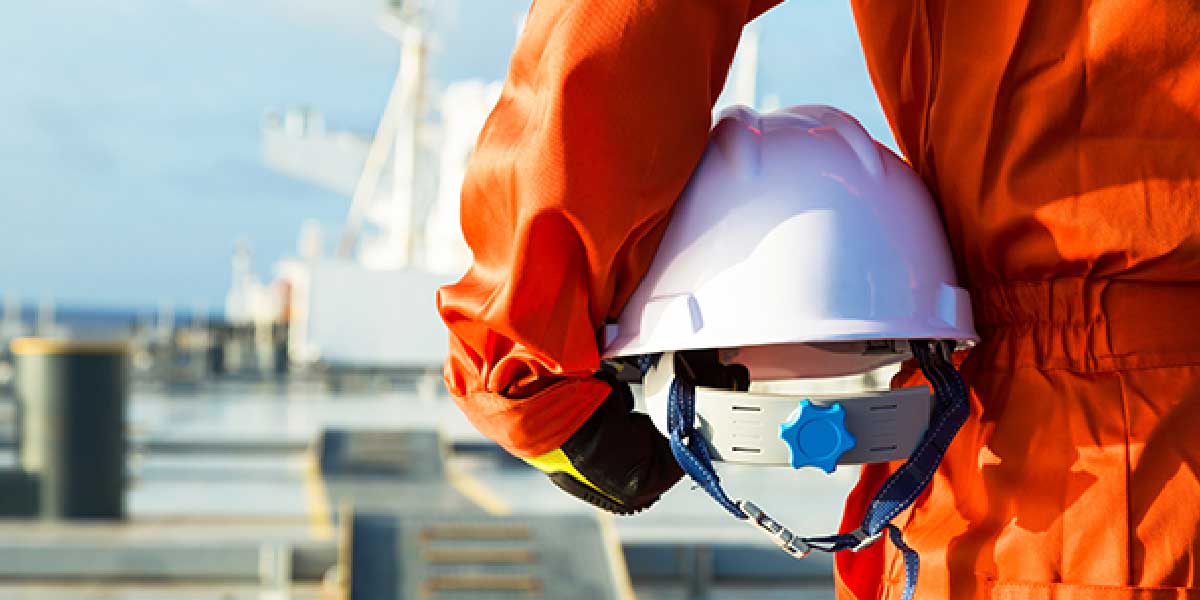
The prospects of Filipino seafarers keeping their competitive in the global shipping industry amid pandemic is high in view of government priority mass vaccination against COVID-19 of seafarers as essential workers.
The statement was made by Associated Philippine Seafarers’ Union (APSU) in the light of Taguig City’s continuing vaccination Tuesday of at least 500 seafarers’ union members at Taguig City Vaccination Hub in BGC with industry preferred Pfizer and Moderna vaccine brands.
APSU is affiliated with the country’s largest group of unions the Associated Labor Unions (ALU) and the biggest labor center Trade Union Congress of the Philippines (TUCP).
“With the continuing government mass vaccination of our seafarers against COVID-19, we are hopeful that the Filipino seafarers can keep its competitive advantage in the global shipping industry as preferred seafarer over other nationals because the Philippine government is prioritizing them as essential workers in its vaccination rollout against COVID-19,” said Gerard Seno, APSU National Executive Vice President.
Other foreign nationals competing for work in merchant ships are from China, Russia, India, Indonesia and Ukraine.
Seno said the unions are grateful to Mayor Lino Cayetano for making this vaccination possible.
He also thanked Inter-Agency Task Force (IATF) for the Management of Emerging Infectious Disease Spokesperson Harry Roque, TUCP Party-list and TUCP President Rep. Raymond Mendoza, Philippine Overseas Employment Administration (POEA) Administrator Hans Cacdac, and Labor Secretary Silvestre Bello III, for helping move up seafarers in the priority list for vaccination to A1 category from B3 and B5.
The move was a result of the joint lobby by seafarers’ unions and manning agencies to ensure that the competitive position as the preferred crew for international seafaring would be defended.
The Maritime Industry Authority (MARINA) estimates there are 730,600 Filipino seafarers.
According to the global union federation the International Transport Workers Federation (ITF) before the pandemic, Filipino seafarers are the backbone of global shipping industry with 25 percent of the 1.7 million marine workers in 51,400 cruise and merchant ships transporting oil, food, medicines, and other essential products to and from different parts of the world are Filipinos.
Filipino seafarers are preferred by shipowners and manning agencies because they have a legacy for being hardworking, multi-skilled and professional workers. However, due to the pandemic restrictions, Filipino seafarers deployment dropped by 54 percent from 470,000 in 2019 to 252,000 in 2020, MARINA said.
“The pandemic quarantine restrictions and lockdowns that increased the cost of hiring Filipino seafarers, our market was seriously challenged by competition from Vietnam, China, Myanmar, Indonesia and Eastern Europe. Strict lockdown procedures prevented the change of crew members with only about 25% of normal crew change,” Seno said.
“Seafarers stranded onboard ships were forced to sign contract extensions and work during the duration of the lockdown. The usual tour of duty normally runs between 4-10 months but in many cases our seafarers were kept on board on extended contracts–some lasting 14 months to 18 months– thereby exposing themselves to physical and mental fatigue with accompanying risk to themselves, their fellow seafarers, and their vessel. In worst case situations, many of our seafarers who cannot board ship due to strict vaccination travel protocols lost their jobs as they could not get on board.
For his part, TUCP Party-list Representative and TUCP President Raymond Mendoza expressed gratitude to Taguig City Mayor Lino Cayetano for recognizing the contribution of seafarers in prioritizing their vaccination in the city vaccination program.
“Filipino seafarers contribute significantly to the global supply chain and help keep our local economy afloat through the financial remittances to their families back home. They are grateful to Mayor Cayetano for helping them through with this city vaccination program at this time when they needed help out of the adversity of the pandemic crisis,” Mendoza said.
“The global crewing industry provides jobs and props up the economy thru dollar remittances. Because of the surge of COVID-19 infections in the subcontinent of India, we expect that seafarers contributed $5.87 billion in remittances. In 2018, the number jumped to $6.14 billion, accounting for 19% of all overseas Filipino workers. For 2018, this was equivalent 9.7% of the Philippines Gross Domestic Product and 8.1% of our Gross National Income.”
Mendoza said the global supply chain is still vigorous and there remains a huge demand for Filipino seafarers. While A1 priority vaccination and the green lanes are correcting some of the policy gaps, the TUCP continues to advocate for the following policies to be adopted by the IATF:
1) The requirements for the vaccination process of seafarers should be simple and not tedious and cumbersome. The seaman’s book should be considered sufficient for purposes of identification as long as it is active and current. No other requirement shall be imposed by any other agency to ensure vaccination.
2) The active seafarer should be allowed to be vaccinated in their respective local government units before returning to Manila for deployment. This will prevent the overcrowding of seafarers in Metro Manila facilities already overwhelmed by longer times mandated for quarantine.
3) Returning seafarers should be given their first jab upon release of their negative PT PCR and prior to returning home to their respective provinces.
4) Seafarers should preferably be given single dose type of vaccine because of the unpredictability of their next deployment. Seafarers are asking for 500,000 jabs to cover for all eventualities.





















